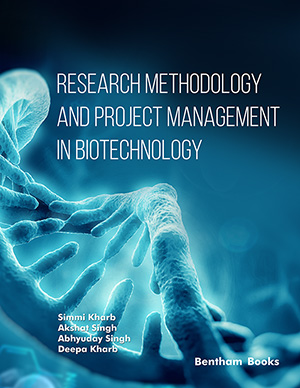
Abstract
The Toll-like family of immune receptors (TLRs) are critical for an efficient immune response to a variety of microorganisms and other antigens that may cause pathology. Modulating immune responses by targeting TLRs therefore has substantial therapeutic potential, and a number of TLR-based therapeutic strategies have been developed. Minimizing the adverse effects that may result from the therapeutic manipulation of these signalling receptors nevertheless remains a major challenge. Efficient responses via TLRs require the activity of the co-receptor CD14, which enhances TLR responses. In an attempt to boost the immune response for therapeutic purposes, we have sought to target CD14 to achieve TLR modulation. Here we discuss the design, activity and therapeutic development options of TLR-derived peptides that interact with CD14 and enhance its co-receptor activity, thus amplifying TLR-mediated responses. This strategy represents a promising alternative to current TLR-based therapies, as it has the potential to amplify responses to different pathogens mediated by different TLRs by targeting the common TLR co-receptor, CD14.
Keywords: Immune response, Toll-like receptors, CD14, Toll-like receptor-based therapies, vaccines, peptides.
Current Pharmaceutical Biotechnology
Title:Therapeutic Boosting of the Immune Response: Turning to CD14 for Help
Volume: 17 Issue: 5
Author(s): Anne-Catherine Raby and Mario O. Labéta
Affiliation:
Keywords: Immune response, Toll-like receptors, CD14, Toll-like receptor-based therapies, vaccines, peptides.
Abstract: The Toll-like family of immune receptors (TLRs) are critical for an efficient immune response to a variety of microorganisms and other antigens that may cause pathology. Modulating immune responses by targeting TLRs therefore has substantial therapeutic potential, and a number of TLR-based therapeutic strategies have been developed. Minimizing the adverse effects that may result from the therapeutic manipulation of these signalling receptors nevertheless remains a major challenge. Efficient responses via TLRs require the activity of the co-receptor CD14, which enhances TLR responses. In an attempt to boost the immune response for therapeutic purposes, we have sought to target CD14 to achieve TLR modulation. Here we discuss the design, activity and therapeutic development options of TLR-derived peptides that interact with CD14 and enhance its co-receptor activity, thus amplifying TLR-mediated responses. This strategy represents a promising alternative to current TLR-based therapies, as it has the potential to amplify responses to different pathogens mediated by different TLRs by targeting the common TLR co-receptor, CD14.
Export Options
About this article
Cite this article as:
Raby Anne-Catherine and Labéta O. Mario, Therapeutic Boosting of the Immune Response: Turning to CD14 for Help, Current Pharmaceutical Biotechnology 2016; 17 (5) . https://dx.doi.org/10.2174/1389201017666160114095708
| DOI https://dx.doi.org/10.2174/1389201017666160114095708 |
Print ISSN 1389-2010 |
| Publisher Name Bentham Science Publisher |
Online ISSN 1873-4316 |
Call for Papers in Thematic Issues
Artificial Intelligence in Bioinformatics
Bioinformatics is an interdisciplinary field that analyzes and explores biological data. This field combines biology and information system. Artificial Intelligence (AI) has attracted great attention as it tries to replicate human intelligence. It has become common technology for analyzing and solving complex data and problems and encompasses sub-fields of machine ...read more
Latest Advancements in Biotherapeutics.
The scope of this thematic issue is to comprehensively explore the rapidly evolving landscape of biotherapeutics, emphasizing breakthroughs in precision medicine. Encompassing diverse therapeutic modalities, the issue will delve into the latest developments in monoclonal antibodies, CRISPR/Cas gene editing, CAR-T cell therapies, and innovative drug delivery systems, such as nanoparticle-based ...read more
Machine Learning and Artificial Intelligence for Medical Data Analysis and Human Information Analysis in Healthcare
The intersection of machine learning (ML) and artificial intelligence (AI) with the pharmaceutical industry is revolutionizing traditional paradigms in drug discovery and development. These technologies have introduced innovative approaches to analyzing complex datasets and predicting chemical properties, leading to more efficient identification and optimization of drug candidates. By employing sophisticated ...read more
 91
91 5
5 1
1 2
2
- Author Guidelines
- Graphical Abstracts
- Fabricating and Stating False Information
- Research Misconduct
- Post Publication Discussions and Corrections
- Publishing Ethics and Rectitude
- Increase Visibility of Your Article
- Archiving Policies
- Peer Review Workflow
- Order Your Article Before Print
- Promote Your Article
- Manuscript Transfer Facility
- Editorial Policies
- Allegations from Whistleblowers
Related Articles
-
Autophagy : Moving Benchside Promises to Patient Bedsides
Current Cancer Drug Targets Histone Deacetylase Inhibitors and Colorectal Cancer: what is new?
Anti-Cancer Agents in Medicinal Chemistry Gene Therapy of Chronic Pain
Current Gene Therapy Targeting the Endocannabinoid System for the Treatment of Cancer – A Practical View
Current Topics in Medicinal Chemistry Anti-Angiogenic Drugs in the Treatment of Metastatic Renal Cell Carcinoma: Advances in Clinical Application
Current Vascular Pharmacology Microbial Polysaccharides and their Derivatives as Current and Prospective Pharmaceuticals
Current Pharmaceutical Design The Circulating Endothelial Cell in Cancer: Towards Marker and Target Identification
Current Pharmaceutical Design Targeted Drug Delivery in Brain Tumors-nanochemistry Applications and Advances
Current Topics in Medicinal Chemistry Interfering with Hedgehog Pathway: New Avenues for Targeted Therapy in Rhabdomyosarcoma
Current Drug Targets Cytokines as Potential Therapeutic Targets and their Role in the Diagnosis and Prediction of Cancers
Current Pharmaceutical Design CD36-TSP-HRGP Interactions in the Regulation of Angiogenesis
Current Pharmaceutical Design Anti-cancer and Anti-angiogenic Properties of Various Natural Pentacyclic Tri-terpenoids and Some of their Chemical Derivatives
Current Organic Chemistry Multifunctional Materials for Cancer Therapy: From Antitumoral Agents to Innovative Administration
Current Organic Chemistry Clinical, Immunological and Therapeutic Aspects of Autoimmune Encephalitis
Recent Patents on CNS Drug Discovery (Discontinued) Targeting SphK1 as a New Strategy against Cancer
Current Drug Targets Circumventing Immune Tolerance Through Epigenetic Modification
Current Pharmaceutical Design F508del-CFTR Rescue: A Matter of Cell Stress Response
Current Pharmaceutical Design Tumor Immune Escape Mechanisms that Operate During Metastasis
Current Pharmaceutical Biotechnology Targeting the NF-κB pathway in prostate cancer: a promising therapeutic approach?
Current Drug Targets Crosstalk between IGF-1R and other Tumor Promoting Pathways
Current Pharmaceutical Design


























